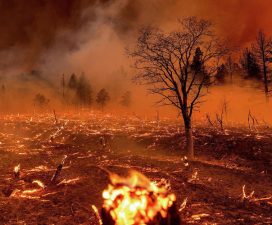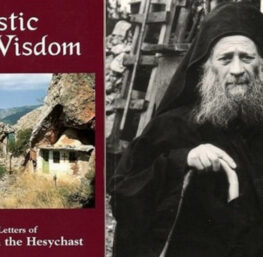FrontPageMagazine.com Julia Gorin August 16, 2006
It’s a peculiar thing that as the threat of global terrorism reaches a crescendo, so apparently does the threat of global warming—at least that’s what some would have us believe.
Tough, national-security language is borrowed from the former and applied to the latter to make the case: “I really consider this a national security issue,” celebrity activist and “An Inconvenient Truth” producer Laurie David said, and hoped the film would serve as a “wake-up call.”
“Truth” star Al Gore calls global warming a “planetary emergency” and speaks of a clash between “civilization and the planet.”
Likewise, Bill Clinton’s “first worry” is climate change. “It’s the only thing that I believe has the power to fundamentally end the march of civilization as we know it,” the reputedly intelligent ex-president told a World Economic Forum audience earlier this year. Leonardo DiCaprio, meanwhile, says we’re in the “11th Hour.”
No wonder that while Islamic terrorism claims lives by the thousands every year, Hollywood churns out movies about the menace of Joe McCarthy, the Crusaders, Israeli Mossad and Richard Nixon. Freud called it displacement.
. . . more




That’s an interesting essay, but it exemplifies a very human flaw: we think something is important if it is “dramatic.” The title illustrates this way of thinking–it sounds silly to say “focus on the weather” when there are terrorists out there trying to kill us. “Weather” is small-talk, while “terrorists” are villains, actual human beings who are making morally repugnant choices that disgust and frighten us.
The truth is, even if you discount global warming, we are more likely to die from something mundane than something dramatic. In the fall of 2001, more people died from automobile accidents in this country than from terrorist attacks, despite the most fatal terrorist strike in the history of our nation.
I don’t really want to debate the merits of global warming, but the dichotomy this author presents is a false one: we needn’t choose between fighting terrorism and every other issue that faces our country. He mentions that Islamic terrorists kill thousands each year, and that’s likely been true for several years, and may unfortunately be true for years to come. But even with nuclear capabilities, terrorists could not possibly kill as many people worldwide each year as mosquito-borne malaria.
“It’s a peculiar thing that as the threat of global terrorism reaches a crescendo, so apparently does the threat of global warming—at least that’s what some would have us believe.”
Apparently some in the Department of Defense are concerned about global warming:
http://www.grist.org/pdf/AbruptClimateChange2003.pdf
But this is just the Department of Defense, so don’t worry.
Note 1. Years back, when I doing some work on a seminary campus, politics was on people’s mind. The threat du jour was the “nuclear winter” and all sorts of warnings about the impending nuclear destruction filled the air. The solution then was a nuclear freeze (remember that?). (Today it’s retooling the economy.)
I kept pointing out to the proponents was that they had a greater likelihood of getting killed crossing the street than they did in a nuclear war. I’m not sure if any of them every got hit crossing the street, but I am sure they did not die in the impending nuclear holocaust.
Anyway, I think the author’s implicit observation is correct: there is a relationship between the rise of secular apocalypticism and global instability.